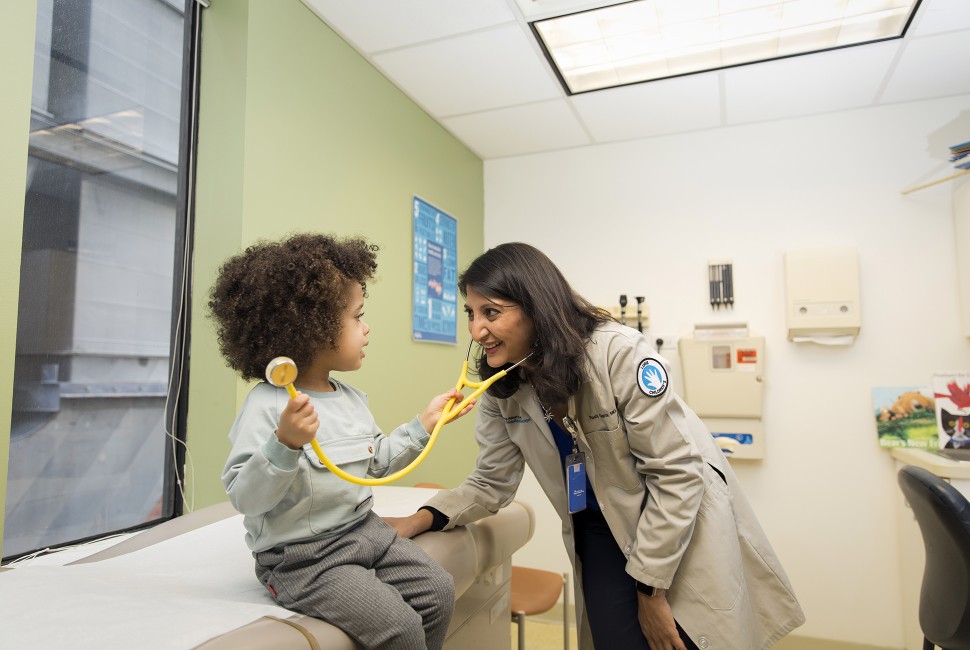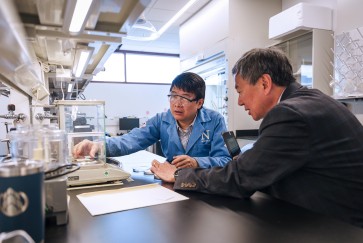A gender gap exists at virtually every stage of the innovation life cycle, where women are less likely than men to disclose inventions, file patents and start companies. A recent study from Osage University Partners found that only 11% of university startups had a female scientific founder. More recent data from PitchBook shows that women-founded startups received just 1.9% of all venture capital funds last year.
Despite strides to improve these statistics, numerous barriers remain. In academia, women are often short on female mentors and role models in innovation, rely on self-education to learn business basics and, due to lack of representation, have a difficult time self-associating as an entrepreneur. Northwestern’s Querrey InQbation Lab — the University’s new hub for space and programming for research-based startups — is tackling these issues head-on with a new initiative: FoundHer.
“The name FoundHer has a double meaning,” said Alexandra de Paz, associate director of new ventures in the Innovation and New Ventures Office (INVO). “We want to find innovative women interested in starting a company, inviting them from throughout the University to participate in entrepreneurship, and then we want to found them by setting them up with the mentors, skills and networks to succeed.”
FoundHer is particularly geared toward women who are in the early stages of their commercialization journeys.
Programming began in December with a speaker series featuring spinout stories of women academic founders from across the country, fundraising advice from women venture capitalists across industry sectors and education to help demystify the tech transfer process.
Then in March, FoundHer launched a six-week fellowship program designed to cultivate first-time women faculty entrepreneurs at Northwestern through one-on-one mentoring, professional development and pitch presentation coaching. The fellowship program was funded by a gift made through the Office of the Provost.
“The fellowship program has been incredible, and I feel empowered to take our start-up, Yobee, to the next level,” said Dr. Ruchi Gupta, one of three fellows in the inaugural cohort. “In addition to so many resources, they provided us with a powerful group of women to support each other, including mentors and a wide range of female entrepreneurs and venture capital leaders.”
Gupta is a professor of pediatrics and preventive medicine at Northwestern University Feinberg School of Medicine. The two other fellows are Yevgenia Kozorovitskiy, associate professor of neurobiology in the Weinberg College of Arts and Sciences, and Julie Kim, the Susy Y. Hung Professor of Obstetrics and Gynecology at Feinberg. All three are founding their first startup companies.
Gupta’s startup, Yobee Care, has created an all-natural scalp treatment for reducing inflammation and restoring the scalp and skin microbiome. Kozorovitskiy’s startup, Neuroplastica, is building a high-throughput drug discovery platform that measures neuroplasticity. Kim’s company, NUVitro, is developing a multi-well microfluidic platform for studying organ physiology in vitro.
Gupta, Kozorovitskiy and Kim each have been paired with an industry mentor who works in a related area. The fellows participate in a structured program, both in person and virtual, consisting of a mix of cohort meetings as well as one-on-one meetings with mentors, a professional communication coach and graphic designers to help the fellows build and deliver a compelling pitch presentation.
At the end of April, the cohort presented to a community of Chicago investors, faculty peers and women entrepreneurs, strengthening their local ties. In June, the fellows will travel to Boston for two action-packed days filled with introductory meetings with local VC firms. While there, the FoundHer fellows program will join forces with a like-minded program, MIT’s Faculty Founder Initiative, for a “VC Blitz” pitching and networking event.
“Our goal is for each of the fellows to meet with a series of venture capitalists while in Boston to start building key investor relationships,” de Paz said. “The trip will allow the fellows to expand their networks — a critical step toward leveling the entrepreneurial playing field as they grow their companies.”
While this year’s fellowship program and speaker series have focused on faculty members, next year’s will target a different audience: graduate students and postdoctoral fellows who have started a company based on their academic research. These women often wear multiple hats — in addition to being a founder, they may also assume the role of the chief executive officer or chief technology officer of their startup, which requires different training.
The FoundHer speaker series, which has featured faculty entrepreneurs such as Shana Kelley of Northwestern, Pam Silver of the Wyss Institute at Harvard and Cigall Kadoch of the Dana-Farber Cancer Institute and Harvard Medical School, concluded on April 26 with an entrepreneur who spun out a company from her graduate research at the University of California, Berkeley. Laura Schewel, founder and CEO of StreetLight Data, discussed how she grew her company into a market leader in transportation analytics and enabled its recent acquisition by a leading global engineering company.
Links to recordings of the speakers in the series are available upon request.


